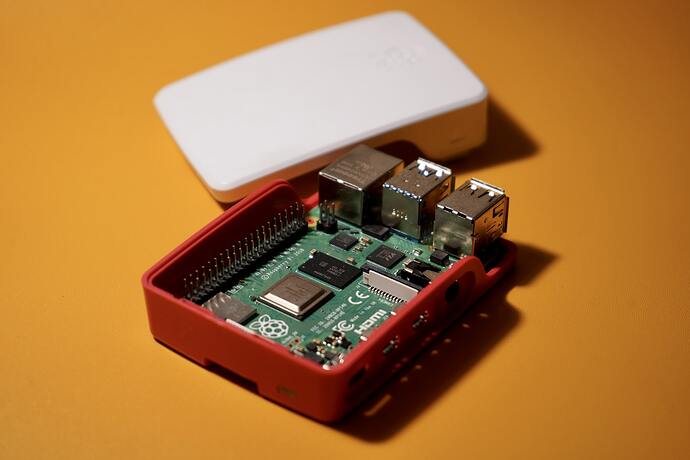Would love to hear about the people using Raspberry Pi (or similar) devices to monitor their farms. How are you using it and what have been your difficulties?
I was following a company that made a control system for Aquaponics using a Raspberry Pi. They are onto their version 2.0. It is called AquaShield.
I was very interesting in getting it, but then we moved and I was not sure how well I would be able to set up as system in our new location and so did not want to put in the investment and not be able to use it. As such, I don’t actually have hands on experience with it. It did look to be functional and very versatile. Their website is: https://www.aquashieldcontrol.com/
If someone here ended up getting one, it would be nice to hear how it turned out.
Nice people at aqua shield. They just finished their second Kickstarter and got some more units reserved. They seem to have a decent consumer product from what I can tell even though I have only met one person who has used it.
What metrics or features do you like about it?
Well for starters - it uses a Raspberry Pi. ![]()
I liked how it was modular and was able to integrate both taking various water quality readings and also control outputs. It looked like it was suited for “hobby / armature” up to “beginning small business”. As long as people don’t depend only on it, it looked like a great although costly tool for the toolbox.
Also the boatload of coding would already be done and tested. ![]()
Nice yeah I’m with ya. Have you messed around with Raspberry Pis yourself or used something like nodered or otherwise?
We worked with a company one time that built a pi (they wanted to test it) that used node red and they liked it but had a really hard time with offline support and remote updates.
I do have a couple Raspberry Pis but have yet to implement them with aquaponics.
Was that because of being remote with limited access to Wifi? When I was looking at it, it seems that people prefer to use Arduino for sensors and a Pi for web interface/logging.
Yeah they had limited access to wifi but they wanted to use controls but didn’t know how to do edge computing. Pi’s have a nice capacity for edge computing and using ML locally but requires some pretty advanced remote updating tricks.
The issue for them was “how do I turn off the pump if i have no internet…”. So they would program that locally “if water is X level then turn off pump” but that isn’t idea because if you ever want to tinker you need to connect to it and change it. Needless to say their aeroponic setup lost all the crops cause the moisture sensor couldn’t talk to the pump and within 30-60m all the roots dried out.
We’ve recently started rolling out IoT shadows which mimic/relay local device states until connectivity resumes. It’s powerful but you still need to figure out how to handle changes locally should wifi not be accessible. But for turning off lights or something it’s less of a risk.
Are you planning on jumping in with pi & ap soon?
Sorry - not fun at all.
Yeah, with out reliable Wifi, you would need to make sure the pi (or any system for that matter) was setup and working well in the first place and even then you could not depend on getting any relayed errors in a timely manner.
I do like your relay system of setting up something to capture and transmit back info whenever Wifi becomes available. ![]()
No, I am still working on sourcing basic setup materials from where I am. The pandemic has also greatly hampered shipping and travel into my area, so outsourcing is even harder. No need for the cart before the horse. ![]()
We currently run Raspberry Pi and Arduinos in our pilot facility. We have described it in this blogpost.
http://cirkularodling.se/build-an-aquaponic-indoor-farm-part-4-water-quality-and-nutrients-testing/
